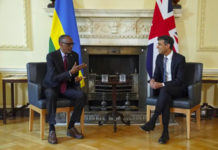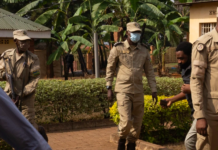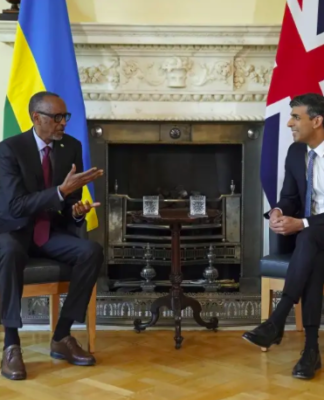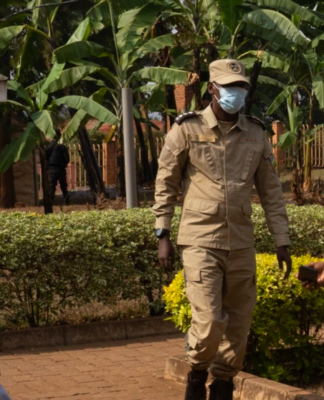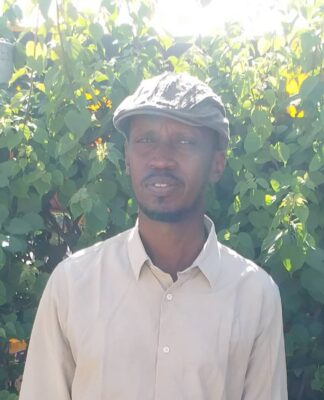In an interview with Jeune Afrique’s Francois Soudan on March 25, 2015 which was translated by Rwanda’s local newspaper The New Times, President Paul Kagame was asked thus: “On April 7, Rwanda will mark the 21st commemoration of the Genocide against the Tutsi. How do you reconcile this important tradition with the necessity of presenting another image: that of a country which is in the process of reconciliation and is also in the process of social and economic development?” President Kagame responded thus: “These two options are not contradictory but complementary. One is about our country’s history and its collective memory, our duty to pay tribute to victims of these atrocities. The other one is about how we live our daily lives which tells another story deeply related to the previous one. At the heart of both, there are our people, their pain, resilience and success.”
Mr. President, your answer reminded me of your response to Uganda’s Daily Monitor far back in 2003 when you stated that Rwandans have reconciled by 93%. Your government officials, like you, present the same responses. But the lowest common denominator in all your responses is falsity- whether these falsehoods are consciously told or not is another subject.
Divided opinion on history, guilt and degree
Mr. President, Rwandans have no collective memory of their turbulent history. If there is one thing that sparks serious disagreements about the Rwandan genocide and war crimes that took place in Rwanda, and which poses a serious roadblock to genuine reconciliation and healing, is the correct version of history. This entails coming to a common understanding of who did what and to what degree. Most Rwandan officials tend to assign the status of perpetrators to the majority Hutu; and that of victims to the Tutsi, thus ignoring the considerable number of Hutu killed by other Hutu during the genocide, Hutus who were killed to create a climate of terror in the country, Hutus who risked their lives to save helpless Tutsis and Tutsis who killed their fellow Tutsis. More importantly, Hutus who were killed by the RPA during the war happen to have no historical reference. This, notwithstanding the problematic legal grounds upon which the genocide rests and the fact that your government stands accused by the UN of serious crimes and probable acts of genocide committed against the Hutu in the DRC. These two combine to form a brigade of ’grey areas’ that need systematic investigation and truth telling as a pre-requisite for genuine reconciliation. Your government, instead, devised a way to suppress any debate of such a kind through legislation.
Ambiguous legal regime
It is through genocide ideology, divisionism, and secretarian laws that your government, Mr. President, effectively blocked any kind of coming to a compromise regarding the nation’s history.
Anyone who questions the legitimacy of our historical foundations is silenced with this ambiguous legislation. These laws give you a passport to prosecute Hutu opponents and the courts extraordinary latitude to indict suspects on the flimsiest grounds.
Intriguingly, earlier on, behind this repressive legislation coloured with ethnic connotations emerges your determination to ban all references to ethnic identities. Accordingly, in today’s Rwanda there are no Hutu or Tutsi or Twa, only Banyarwanda. The official rationale behind this prohibition is very precise but profoundly disingenuous: given that the genocide was the result of ethnic divisions, doing away with such divisions is the best guarantee of peace. But by suppressing dissent and debate using the very divisionism laws, the result might be the precise opposite of what was intended. Later, you decided to do away with ethnic ban by asking all the Hutus to ask for forgiveness for the crimes the presumed Hutu race committed. Mr. President, this is a ticking time bomb because: (!) Criminal liability is individual and (2) every group has criminals and angels.
Dictated memory
In Valérie Rosoux’s excellent work on ”the work of memory” as a central aspect of post-conflict strategies, An extremely important message is presented: ”The question raised in the aftermath of conflict is not only ‘how are we going to handle the future?’, but ‘how are going to handle the past?”. She notes three possible options – one can either emphasize the memory of past conflict, conceal it, or, engage in the work of memory.
Your attitude is perhaps best described as a combination of the first two, but with the first looming decidedly larger: there is, on the one hand, a conscious effort to obliterate the past by erasing ethnic identities, while at the same time leaving no doubt that the roles of perpetrators and victims are assigned respectively to Hutu and Tutsi, and are by no means interchangeable, testified by your insistence on Hutus to ask for forgiveness.
Since the memory of the genocide is not a unifying factor, as disagreement prevails over the clear demarcation of victim and perpetrator, majority of the majority Hutus choose to forget their feelings and ask for forgiveness. The cumulative pressures of government coercion, fear of the other, pragmatism combine to make amnesia the preferred option. Pretending peace has become the norm.
Mr. President, behind this pretence, this chosen amnesia lies something more fundamental; a ’thwarted memory’. At the center of the problem is that the exclusion of Hutu memory for the sake of a dictated unifying official memory can never bring the people of Rwanda any closer to national reconciliation, or, at the very least, peaceful co-habitation.
The imposition of an official memory, purged of ethnic references, institutionalizes a mode of thought control profoundly antithetical to any kind of inter-ethnic dialogue aimed at recognition and forgiveness. This is hardly the way to bring Hutu and Tutsi closer together in a common understanding of their tragic past, and, Nelson Mandela would argue, this is a ticking time bomb.
Genocide as a Tutsi unifier
Mr. President, you know as much as I know that the political capital of genocide as a Tutsi unifier has long lost its initial currency. Since 1994, the main psychological characteristic of your ruling Tutsi bourgeoisie and your hostages is a mix of ethnic supremacism and the mindset of a community besieged and constantly under threat. Because of this characteristic, they tend to see the whole society through the lenses of their own fate, negate the existence of class stratification and class contradictions in the Rwandan society and feel comfortable in their ideological confusion. Unconsciously, they have accelerated the threat, rather than mitigate it.
But this is no longer the case. In Rwanda today, there is no real class awareness among the Tutsis. An individual easily passes overnight from grace to grass, from the wealthiest condition to the poorest, ‘expelled’ from the class and branded an FDLR collaborator or a genocide negationist depending on his/her allegiance to you. Their sense of belonging to a class is non-existent. Basically, like in pre-independence days, a Tutsi can be Hutufied while a Hutu is Tutsified. In such a setting, identity ceases to matter.
Mr. President, neither late col (RIP) Patrick Karegeya was a Hutu neither is Neither General Kayumba Nyamwasa. Assiel kabera, Major Ruzindana, Lt Mutabazi Joel, Sebarenzi Kabuye, Patrick Habamenshi, Gerald Gahima or Theogene Rudasingwa, are.
The Tutsi elites are conscious that what they possess can vanish in a wink without prior notice while the majority Tutsis live in poverty like their Hutu counterparts. In these Tutsis, there are those who fought in the struggle for “liberation” but are now declared FDLR. There are those who were in Nairobi or London during the struggle and are eating big while those who lost their legs are living in squalor in casualty ‘camps’.
There are those assured of an MBA on a tax payer’s money while others can’t afford secondary schooling. There are those who have been killed as if they belong to somewhere. There are those who go to offices with chits for which kind of jobs they want from their uncles or fathers while some get to the point of developing holes in their shoes looking for jobs. Realising this, you have decided to make Makuza, Bazivamo and Rwarakabije the “new ideological anchors” of the faded RPF ideology, but you can rest assured that like Bernard Makuza’s father sung for Kayibanda’s continuity in power after the expiry of his mandate, and like Makuza is singing for you to carry out a constitutional coup and stay in power beyond 2017; so will your new ideological anchors sing for some one who will come after you. Be warned.
All these combine to make the Rwandan society fragile, polarised and volatile more than ever, and the genocide/reconciliation rhetoric is certainly one of the many false pillars upon which your political capital and legitimacy rests. Point of correction ends.
Didas Gasana

